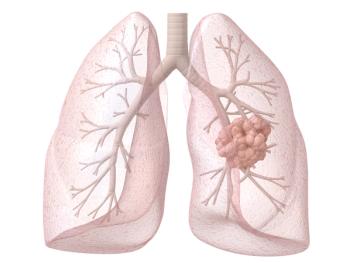
Using the AACR Health Disparities Report to Drive Change in Cancer Care
The AACR Health Disparities Report highlights the changes needed to achieve health equity for patients with cancer.
The American Association for Cancer Research (AACR) Health Disparities Report is a powerful tool that can help educate those in the oncology community on health equity issues among patients with cancer, according to Robert A. Winn, MD.
Winn described his experiences with organizing the AACR Health Disparities Reports since the publication of the first in 2020. He stated that he was “happy” to be involved in this effort to help spread awareness of cancer disparities.
Winn, director and Lipman Chair in Oncology at Virginia Commonwealth University (VCU) Massey Comprehensive Cancer Center, senior associate for Cancer Innovation, and professor of Pulmonary Disease and Critical Cancer Medicine at VCU School of Medicine, also touched on how working with other professional bodies such as the American Cancer of Clinical Oncology (ASCO) may achieve the goal of educating others on heath disparity issues in oncology.
Transcript:
The education part of this is exciting for us. I hope that the AACR Health Disparities Report is just 1 tool to not only get my colleagues but to get people within the community and get those people who are in charge of our resources a little bit more up-to-speed and aware. This report has, on its own, been substantiated. I was part of the first one in 2020, and part of the second one in 2022. I’m happy to be part of [the 2023] one as well and leading the charge of the 2024 report. That’s one element that we hope will be able to help educate people and bring awareness. The other one is just [the] good old-fashioned [strategy of] having our professional bodies, whether they’re AACR, AACI [Association of American Cancer Institutes], American Cancer Society, or ASCO [American Society of Clinical Oncology] all working on one accord, and that is to bring to the attention that cancer is not like it used to be in the 1950s. It is not necessarily a death sentence if you can get to the right place and get the right care at the right time.
Reference
Experts forecast 2024, part 2: achieving cancer health equity. News release. AACR. January 12, 2024. Accessed February 16, 2024. https://shorturl.at/cMQR8
Newsletter
Stay up to date on recent advances in the multidisciplinary approach to cancer.












































